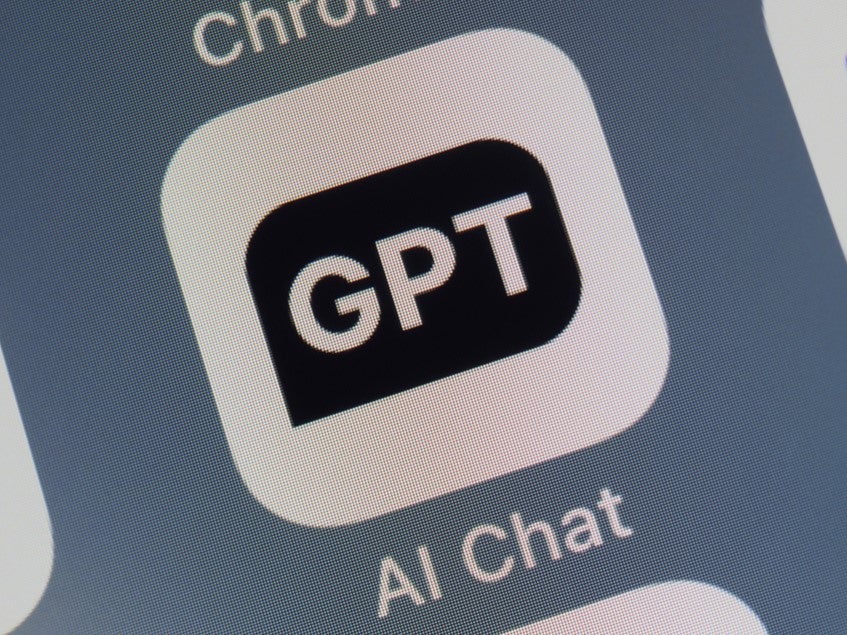Last November, Adam D'Angelo found himself at the epicenter of one of the biggest controversies in the tech industry. The board of OpenAI — the $80 billion startup leading the AI bandwagon — had abruptly booted its CEO, Sam Altman, only to reinstate him just days later. D'Angelo was on the board that dismissed Altman… and he was (and remains) on the board that brought him back in. In fact, he was the only person who kept his seat amidst the ensuing restructuring that saw a lot of the original board leave.
It was certainly a rocky time for OpenAI, but it was perhaps doubly so for D'Angelo, since the drama was playing out while his own company, Quora, was taking big steps towards AI.
Quora's AI Platform Poe
Quora, the crowdsourced Q&A site D'Angelo co-founded and leads as CEO, had been building an AI platform of its own while also fundraising (a $75 million round that valued it at $425 million, per PitchBook). The company in February 2023 had launched Poe (short for Platform for Open Exploration), which lets users ask questions of and talk to a variety of chatbots, lets developers build their own bots, and offers a bot monetization program and marketplace similar to OpenAI's GPT Store.

Challenges and Opportunities in AI
Quora's core Q&A service was facing some big questions, too. Incumbent search engines like Google and Bing were beginning to use AI to produce more fluid results and answer questions, and with tools like ChatGPT and Perplexity being widely available, what could Quora do to secure a position as one of the top websites where people could get their questions answered? More crucially, does anyone actually want or need crowdsourced Q&A anymore?
For D'Angelo, those questions are intrinsic to his pursuit of AI, which he sees as an important tool that people can use to tap the Internet's collective knowledge. An important, if understated, figure in tech for years, he's been involved in efforts to tap the Internet's store of knowledge for a long time — he was friends with Mark Zuckerberg in high school, where in 2002 the pair built a digital music suggestion service called Synapse that, according to this vintage piece from the Harvard Crimson, beat off acquisition offers from Microsoft and more. Later, he became CTO at Facebook when it was just starting out, and then eventually co-founded Quora.

All of that was seemingly a long road toward building AI tools for him, it appears. D'Angelo recently shared insights about the challenges and opportunities in AI today, how to build and support a developer community, and the role of humans in sharing and accessing knowledge.
Quora's Approach to AI
The hype around AI seems to be having less of an impact on the search for information than you might think. D'Angelo mentioned that Quora is seeing record numbers of users despite the proliferation of AI tools — although he declined to update the 400 million monthly active users figure it disclosed last July.
Still, there is a bridge between what Quora set out to do and D'Angelo's interest in AI. Recently, in a conversation with David George, a general partner at a16z, D'Angelo said he was drawn to social networking because he was actually interested in AI. The latter was hard to develop at that time, but he saw social networks as an alternative architecture for achieving the same idea: People, assembled in a social network, in his view, almost played the role of living, large information models, as they could provide news, entertainment and more to each other.
The Growth of Poe
Quora opened up Poe to all users last year after a few months of closed beta testing. Since then, the company has introduced tools to create and browse the bots on its marketplace.
Developers and users can access different large language models through Poe, similar to OpenAI's ChatGPT and GPT Store. However, both platforms face challenges in standing out amidst the proliferation of bots. D'Angelo mentioned that Quora is working on improving bot discovery to help developers earn sustainable money on the platform.

Monetization and Growth
Despite these challenges, Quora is focused on helping developers earn sustainable money by improving bot discovery. Poe is growing steadily, but it is still smaller than ChatGPT in terms of user base. D'Angelo shared that the company will rely on Poe's $19.99 per month subscription product for revenue generation.
Quora is also experimenting with AI-powered answers and tools for users to write answers, all while emphasizing the importance of human knowledge within the platform.
Conclusion
Quora, under the leadership of Adam D'Angelo, continues to navigate the challenges and opportunities presented by AI in the Q&A space. With Poe as its AI platform, the company is working towards improving bot discovery, supporting developers, and enhancing user experience while staying true to its foundation of human knowledge intertwined with AI technology.










